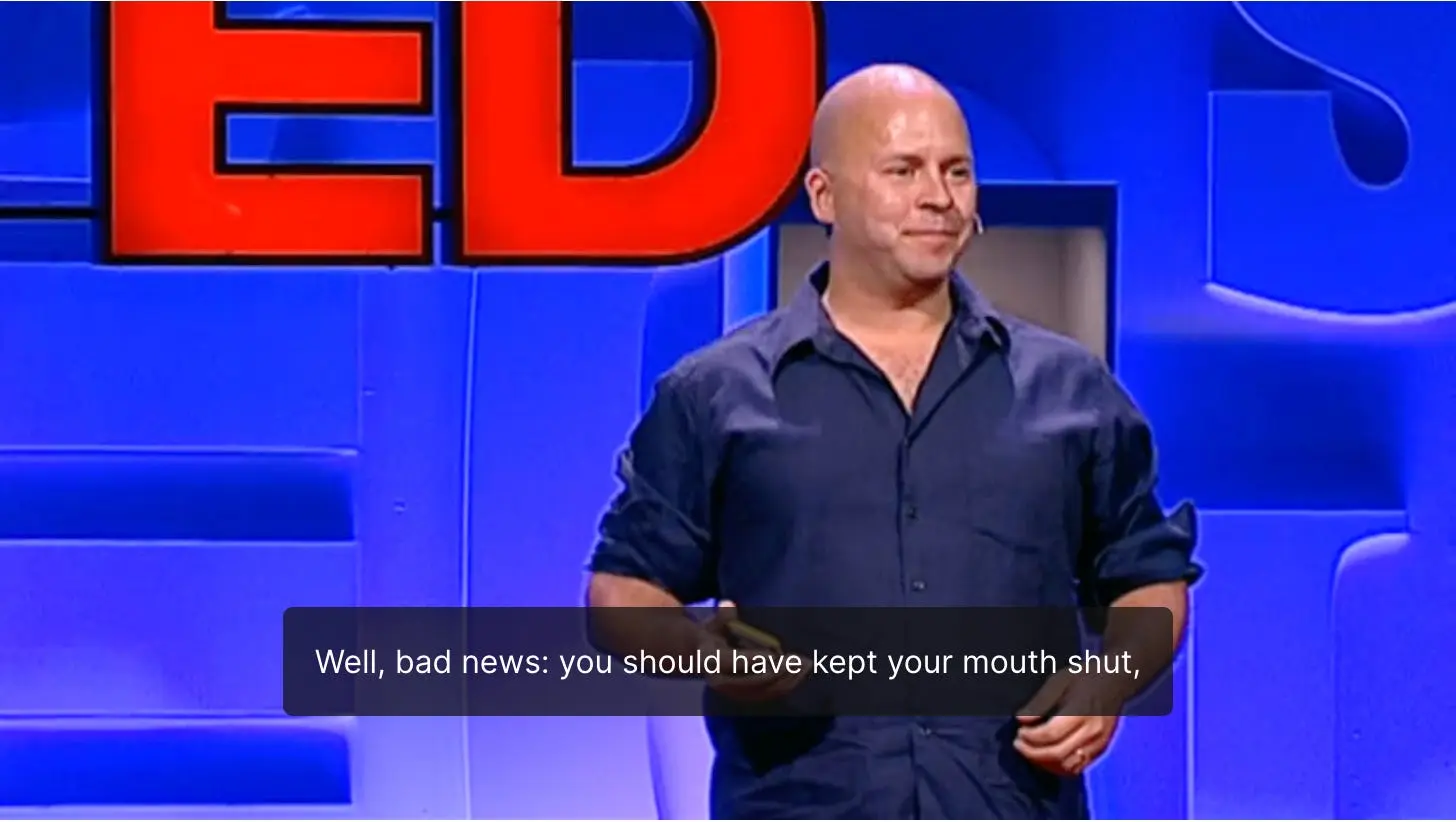Ignore the Bro Psych - Proclaim Your Goals
There’s a lot of Bro Psych swirling around on whether or not you should share your goals with others, and who you should share them with if you do.
I blame this 2010 Ted Talk for creating the cultural on-ramp that allowed this idea to infest the web.

The idea goes something like this:
The repeated psychology tests have proven that telling someone your goal makes it less likely to happen. […] Ideally you would not be satisfied until you'd actually done the work. But when you tell someone your goal and they acknowledge it, psychologists have found that it's called a "social reality." The mind is kind of tricked into feeling that it's already done. And then because you've felt that satisfaction, you're less motivated to do the actual hard work necessary.
Derek Siver, Keep your goals to yourself
The Ted Talk excerpt is backed by Peter Gollwitzer’s research, an NYU Psych professor focused on better understanding “how goals and plans affect thought, feeling, and action.” He’s done a lot more reflection on “goal attainment implementation strategies” than the rest of us (hint: more than bullet-journaling your way to success).
As someone who struggles to follow through on their training intentions without sharing them with others, I expect there’s a lot that I can learn from his research. I’m not starting a campaign against Peter’s work. But, like many pop-psych adages circling the internet, the idea of a goal-sharing-doom-loop starts to feel shaky once you start digging into it further.
The concept is backed by self-referential media that generalizes and distills the complexity of human goal setting and attainment down to “sharing a goal = bad.” There’s a lot more that goes into it. Peter’s research lists dozens of reasons people fail to achieve goals in this single paper alone.
So, according to the Ted Talk:
- Tell someone that you’re going to do something
- Feel so good you don’t need to do the thing in the first place
The argument is weak.
If you fail to do something because you told people that you would do it, your failure might have more to do with your character.
If you’re anything like me, you probably feel worse when you fail to do something that you committed to doing. This called accountability, and it’s a basic tenant of being a functioning adult.
Goal sharing is low on my list of reasons that I’m not an exceptional athlete. And, if I had to guess, “inconsistent training” and “eating too much ice-cream” probably rank higher than self-sabotaging-social-media-posting for most endurance aspirants.
Last week I shared a harrowing story of how I overcame adversity and won my first race managed to show up to a sprint triathlon after years of no-shows. Give it a read if you have a similar legacy of orphaned race packets and hold UltraSignup in contempt for publicly listing your Did-Not-Start history.
In the time since completing that first triathlon, I sold a house, endured an arduous closing on another one, and settled into the rhythms of a new job. My downtime hasn't been particularly restful, either. During our housing transition, my husband and I set up shop in my parents basement before heading out on an extended Colorado trip with the parents, siblings, and associated offspring. So in addition to the chaos inherent to these sorts of life transitions, we've been bumping shoulders and sharing meals with our favorite relatives for the last few weeks.
Fortunately, everything has started settling into place this week. We cut the check to the movers last weekend, and I've spent the last few days charting new running routes. The trails are abundant, shaded, and pleasant - perfect to embark into the next chapter of my endurance resume.
Past Performance Is Not Indicative Of Future Results
I registered for my first marathon five years ago, in 2019.
I registered for my second in 2020.
I didn't run either of them.
Instead, I DNS'd the same race twice, first in 2019 and then again in 2020.

I trace the 2019 DNS conviction to inconsistent training and insufficient volume. The 2020 DNS is a write off - as far as I'm concerned, whatever happened in 2020 stays in 2020. That includes writing the race director to drop down to half-marathon distance, and then not even bothering to show up.
Regardless, my track record with the event is lackluster. And with 11 weeks until race day, I'm not entirely sure there's enough time to build up my long-run's distance. Injuries are a drag, and I prefer to recount them in entertaining stories rather than bouts of too-much-too-soon syndrome.
The general consensus seems to be that it's a good idea to pause when registering for a race that doesn't leave adequate time for a proper training phase.
This uncertainty, paired with the recent life transitions, provides perfectly reasonable excuses to punt on any serious extracurricular activities until 2025. Working, napping, and eating my way through Q4 doesn't sound half bad.
That is all to say, I’m hesitant to close the gap between UltraSignup's registration flow and my credit card. Plus, if you DNS the same race three times, the universe might be signaling a need to explore new forms of recreation.
But, as good as a nap sounds right now, I'm excited to spend the upcoming fall exploring the local trails, and I'm eager to "close the loop" on the marathon that I first tried to run five years ago. Time flies. If I don’t get after this one now, there’s a chance I won’t get back to it for five more years. Or never.
Third try is the charm, right? carpe diem.
So, What’s Next?
Making it to the starting line of this race requires adherence to a training plan. With the race only 11 weeks out, I'll be leaning on my previous base building and sprint triathlon training to make it to the starting line.
I know there’s a chance that a chronic DNS flareup will subject me to existential introspection that calls into question all past and future endurance pursuits. But, if I wanted to do something easy, I wouldn’t be attempting my third marathon for the first time.
The Author
Alex Z.
Triathlete, trail runner, CrossFit endurance
Alex is a maximalist, and that’s what led him to triathlons. Swimming, biking, running–why choose one when you could do all three? But as a chronic upstart, he found there were many hurdles to getting started. Through Gatebreak Endurance, he shares information and tools to help anyone achieve their goals.
Alex is a maximalist, and that’s what led him to triathlons. Swimming, biking, running–why choose one when you could do all three? But as a chronic upstart, he found there were many hurdles to getting started. Through Gatebreak Endurance, he shares information and tools to help anyone achieve their goals.



